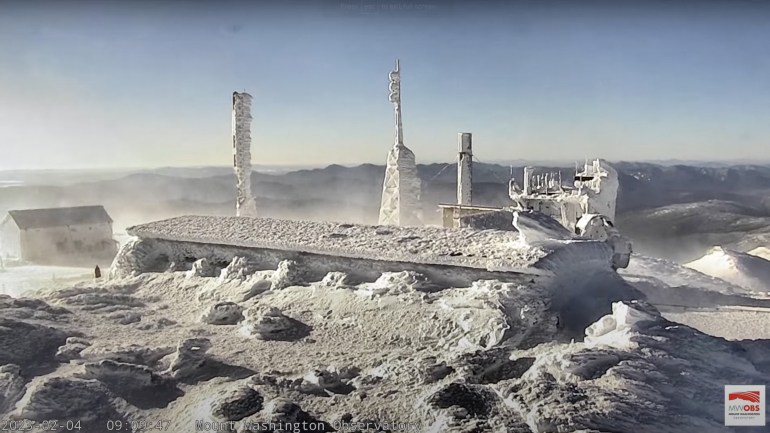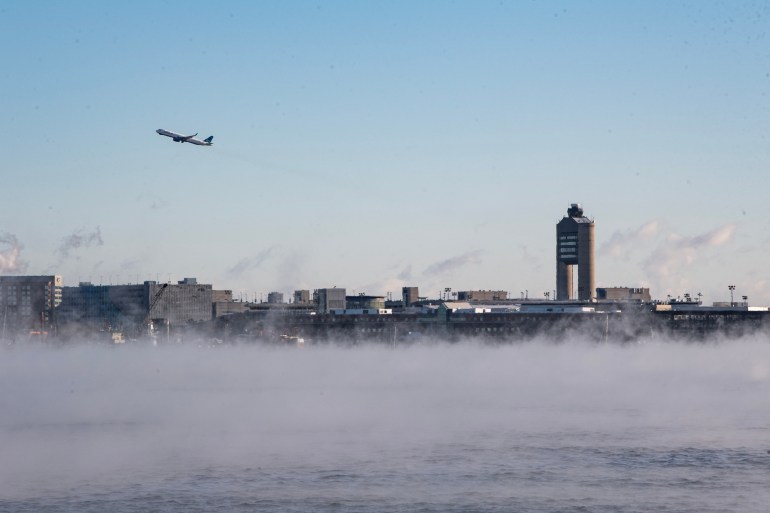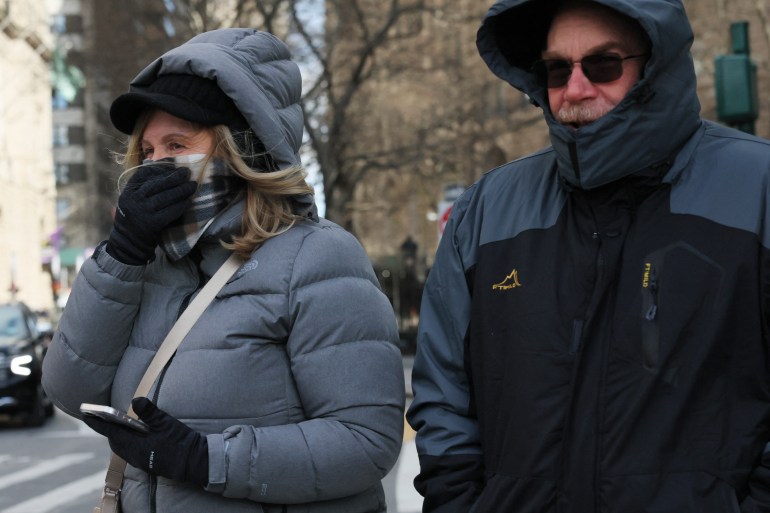‘Generational’ Arctic blast hits Northeast US, Canada
A powerful arctic blast swept into the US Northeast, Canada pushing temperatures to perilously low levels.

A “generational” Arctic blast brought dangerously cold temperatures to swaths of the northeastern United States and Canada on Saturday, with forecasters warning that frostbite could occur in just five minutes.
Atop Mount Washington in New Hampshire state, the wind-chill factor reached -78 degrees Celsius (-108 degrees Fahrenheit) overnight, the National Weather Service (NWS) said.
Keep reading
list of 4 itemsWinter chill brings power outages and travel issues to US south
What to do if stranded in a car in cold weather
Winter freeze strains pipes, water infrastructure in US South
That broke the previous low recorded there of -74C (-101F), the Weather Channel said.
At almost 1,920 metres (6,299 feet), Mount Washington is the highest peak in the northeastern US and is known for having some of the world’s worst weather.

Temperatures of -43C (-45 F) and wind gusts of more than 177 km/h (109 mph) combined for the historic low.
The NWS office in Caribou, Maine, said a wind chill of -51C (-29F) was recorded in the small town of Frenchville, just south of the border with Canada.
“This is an epic, generational arctic outbreak,” the office had warned in an advisory in advance of the front.
It said the chills would be “something northern and eastern Maine has not seen since similar outbreaks in 1982 and 1988.”
“Most stations are forecast to see their lowest wind chills in decades or, in some cases, the lowest ever recorded,” the service added.
It warned that frostbite on exposed skin can occur within five minutes in such conditions.
“The dangers of being caught unprepared without shelter from the elements and without proper winter survival gear cannot be stressed enough,” the service wrote.

Extreme weather warnings covering several million people were in effect across much of New England, Quebec and eastern Canada.
A wind chill factor of -41C (-41F) was measured at Montreal International Airport.
The Hydro Quebec energy company said the polar blast had sparked record high electricity consumption late on Friday and urged customers to turn down their heating by a degree or two.
In New York City, a “code blue” regulation was in effect, meaning no homeless shelter could turn anyone anyway.
In New York’s Central Park, the mercury dipped to -16C (3F), the NWS said.

Wind chill temperatures fell below -34C (-29F) in Boston, where public schools were closed Friday as a precautionary measure.
Warmer air is due to move into the region late on Sunday.